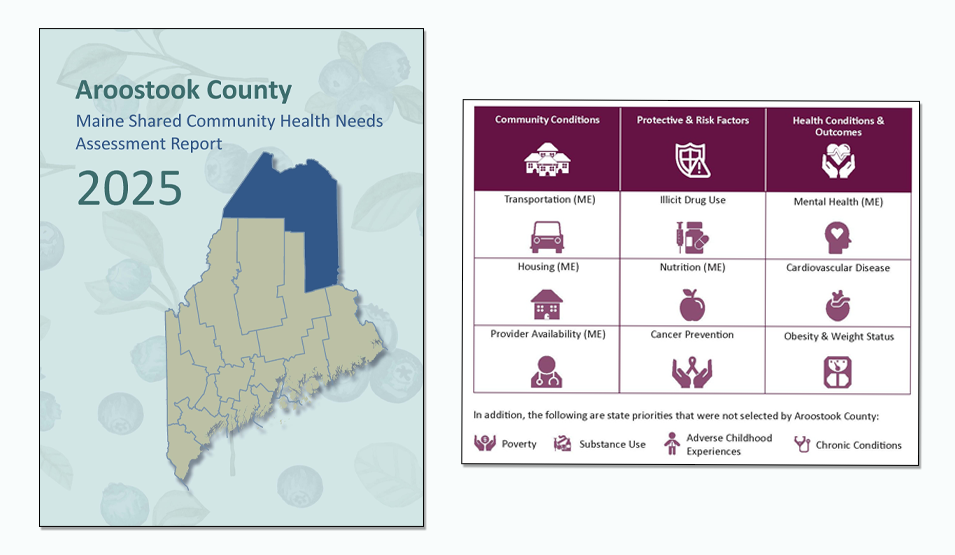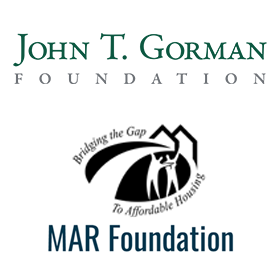Latest News
Aroostook County Results Released as Part of Innovative Statewide Community Health Needs Assessment

The 2025 Aroostook County Community Health Needs Assessment (CHNA), released as part of the Maine Shared CHNA, provides an in-depth look at the region’s most urgent health and social priorities. For the first time, the assessment was conducted using a highly collaborative, statewide model, integrating the efforts of public health experts, healthcare systems, and all ten of Maine’s Community Action Agencies (CAAs), including Aroostook County Action Program (ACAP).
This year’s report marks a significant milestone: the first formal participation of the Maine Community Action Partnership (MeCAP) in the Maine Shared CHNA. This groundbreaking integration aligns federal, state, and community-driven assessments into a single, unified process—resulting in a more holistic and actionable picture of community health and well-being in Aroostook County and beyond.
“The inclusion of Community Action Agencies in the Maine Shared CHNA represents a sea change in how we evaluate and respond to the needs of our communities,” said Jason Parent, Executive Director/CEO of ACAP. “For Aroostook County, this means our voice—and the voices of our residents—are more directly informing strategies that address the real challenges people face every day, from housing to mental health and overall wellbeing to transportation.”
As part of the next step in the process, the ACAP Board of Directors will vote to formally accept the Aroostook County CHNA report at their meeting on Thursday, May 22. This formal adoption will guide ACAP’s strategic planning and programming priorities in the years ahead.
Key Findings for Aroostook County
The report underscores several pressing challenges unique to Aroostook County:
- Transportation emerged as the top community concern. Over 8.6% of households lack access to a vehicle, a rate significantly higher than the state average. Nearly two-thirds of survey respondents cited transportation issues as a negative impact on their lives and communities.
- Affordable Housing remains a critical need. While housing costs are lower than state and national averages, 10.1% of households spend more than half their income on housing, and forum participants cited rising rent and utility costs as major stressors.
- Substance Use, particularly opioid misuse, was identified as the most pressing protective and risk factor. Drug-induced death rates in the county have more than doubled in recent years, with 56 overdose deaths per 100,000 people in 2023.
- Nutrition and Food Insecurity continue to pose serious health risks. 16.2% of adults and 23.5% of youth are food insecure, and many residents lack access to affordable, quality foods or the tools to prepare healthy meals.
- Mental Health concerns are widespread. A severe shortage of providers (1 psychiatrist per 32,627 residents) combined with high levels of isolation—especially among older adults—has left many without adequate care. Nearly one-third (32.7%) of residents 65+ live alone, increasing risks of loneliness and related mental health issues.
A New Approach to Health Assessment
The 2025 CHNA reflects an innovative and unified methodology that included data analysis, community surveys, focus groups, key informant interviews, and county-specific stakeholder forums. By involving partners across sectors—including CAAs, hospitals, and the Maine CDC—the process created a comprehensive, inclusive view of community needs.
This information will directly inform:
- State and local health improvement plans;
- Hospital community health strategies;
- Community Action Agency initiatives targeting poverty’s impact on health.
- “The real strength of this year’s assessment lies in its community-rooted insights and evidence-based analysis,” said Heather Drake, Program Manager for the Maine Shared CHNA. “We now have a stronger foundation for action than ever before.”
Moving Forward
As Aroostook County continues to navigate complex social and health challenges, the 2025 CHNA serves as a strategic tool for setting priorities and directing resources. Local organizations, public health leaders, and state officials will use the data to develop targeted interventions, ensuring that every effort is both informed and impactful.
The full Aroostook County report and state-wide CHNA findings are available at www.mainechna.org.
Category
Recent Posts


